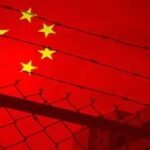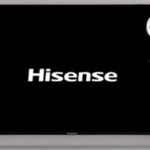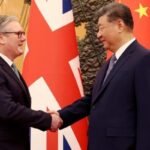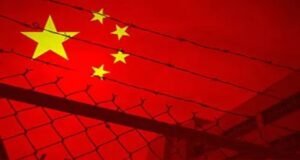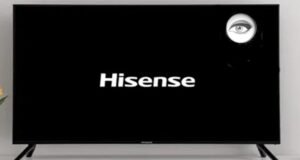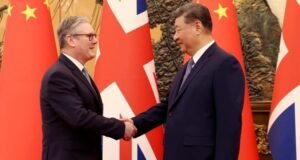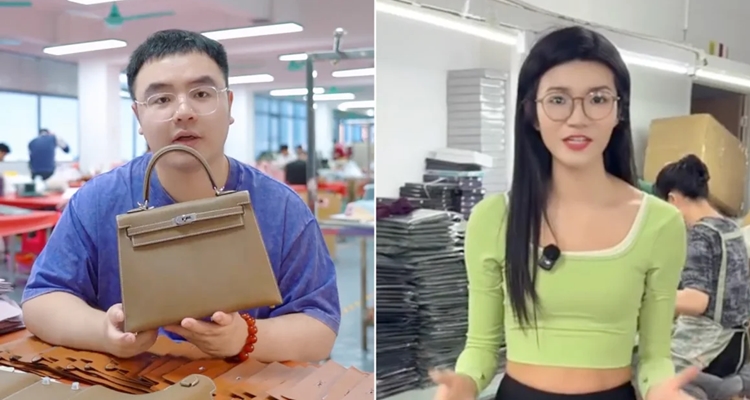
You have about two weeks in which to allow yourself to be defrauded tariff-free by Chinese sellers of “original” fake merchandise before the Trump administration’s removal of the de minimis exemption from tariffs on China goes into effect.
De minimis means “so minor as to merit disregard” (Merriam-Webster). Or, in this case, so minor as to merit exemption. Except that sub-$800 shipments are not regarded as so minor anymore.
The de minimis exemption from the tariffs imposed on China had never been removed during the first Trump administration. That’s changing. After May 2, China-based shippers of packages with goods worth $800 or less will also have to pay steep tariffs or duties.
On April 2, when the end of the exemption was formally announced, things looked bad for Chinese sellers who ship to the United States. Then, on April 8, they got worse.
De end of de minimis
In an April 2 fact sheet, the White House reported that President Trump had signed an executive order “eliminating duty-free de minimis treatment for low-value imports from China,” giving the rationale that doing so was necessary to stem the “illicit flow of synthetic opioids into the U.S.” The U.S. was ending the de minimis exception “for covered goods from the People’s Republic of China and Hong Kong starting May 2, 2025 at 12:01 a.m. EDT.”
Items shipped outside of the international postal network and valued at $800 or less would be subject to “all applicable duties.” But postal items valued at $800 or less would be “subject to a duty rate of either 30 percent of their value or $25 per item (increasing to $50 per item after June 1, 2025),” in lieu of other duties.
This seemed to mean, then, that Chinese vendors would have an incentive to use the postal system if at all possible: either 30% or $50 (whichever is less?) would be less than “all applicable duties” that goods shipped outside of the postal system would be subject to.
Wait, there’s more
But in an executive order of April 8, 2025, as part of the retaliation against China’s retaliation against the United States, Trump increased the 30 percent mentioned in the previous paragraph to 90 percent and increased the $25 duty mentioned in the previous paragraph to $50 and increased the post-June 1 duty from $50 to $150. It’s all a little confusing but I’m sure that the U.S. officials collecting the tariffs will get it right. Anyway, it’s a lot of money.
In an April 16 story about how China-based sellers are coping with the new U.S. tariff regime, CNN says that “Chinese suppliers have been flooding American social media this week, urging users to outflank President Donald Trump’s 145% tariffs on Beijing by buying directly from their factories.”
One TikTok user, who goes by Wang Sen, claims that he is the original equipment manufacturer for most luxury brands, while standing in front of a wall of what appear to be ultra-spendy Birkin bags. OEMs work behind the scenes to make the products that another company then sells under its own brand.
“Why don’t you just contact us and buy from us? You won’t believe the prices we give you,” he said in one clip.
His video was later taken down by the app. In the meantime, though, DHgate, an online wholesale store infamous for selling Chinese dupes of luxury goods, has shot to #2 on the US Apple app store. Another app, Taobao, China’s OG e-commerce site, is at #7.
It’s highly improbable that these are real suppliers for brands like Lululemon and Chanel, multiple experts told CNN. Legitimate manufacturers usually sign non-disclosure agreements, so it’s unlikely that these creators are selling the real thing.
The CNN story doesn’t mention that the de minimis exemption ends on May 2. It also doesn’t mention why Apple is willing to keep an app for an “online wholesale store infamous for selling Chinese dupes of luxury goods” in its app store.
Conceivably, after May 2 and even after June 1, Chinese sellers of fake Birkin or Louis Vuitton bags may find a way to make money despite the new tariff costs. Or perhaps some Shenzhen shippers will try to evade customs checks the way drug traffickers sometimes do. Or just collect your payment and never ship the product, leaving you with no recourse. If you’re buying direct from “the manufacturer,” Amazon will not be refunding your money.
Also see:
StoptheCCP.org: “Chinese Fakes Are a Real Problem”
NPR: “China no longer has a de minimis trade exemption. What is it?”

